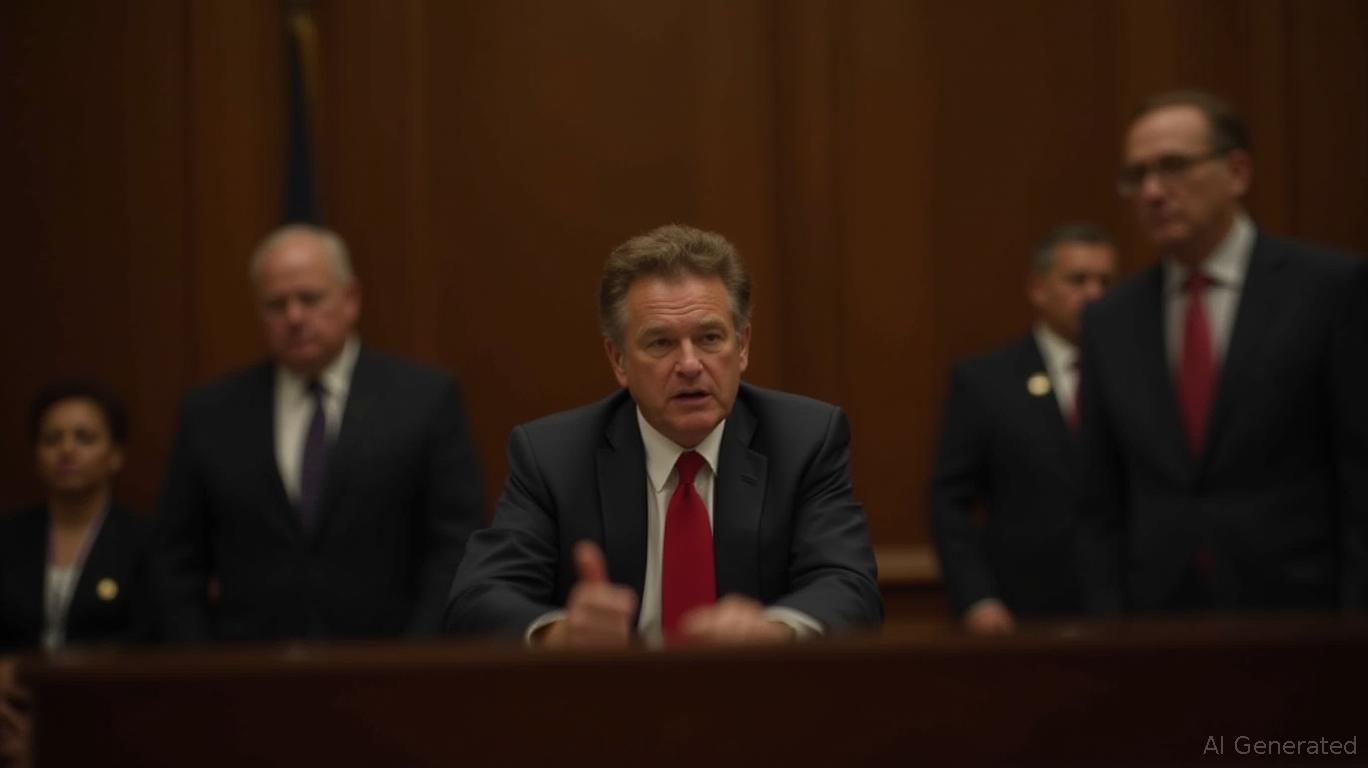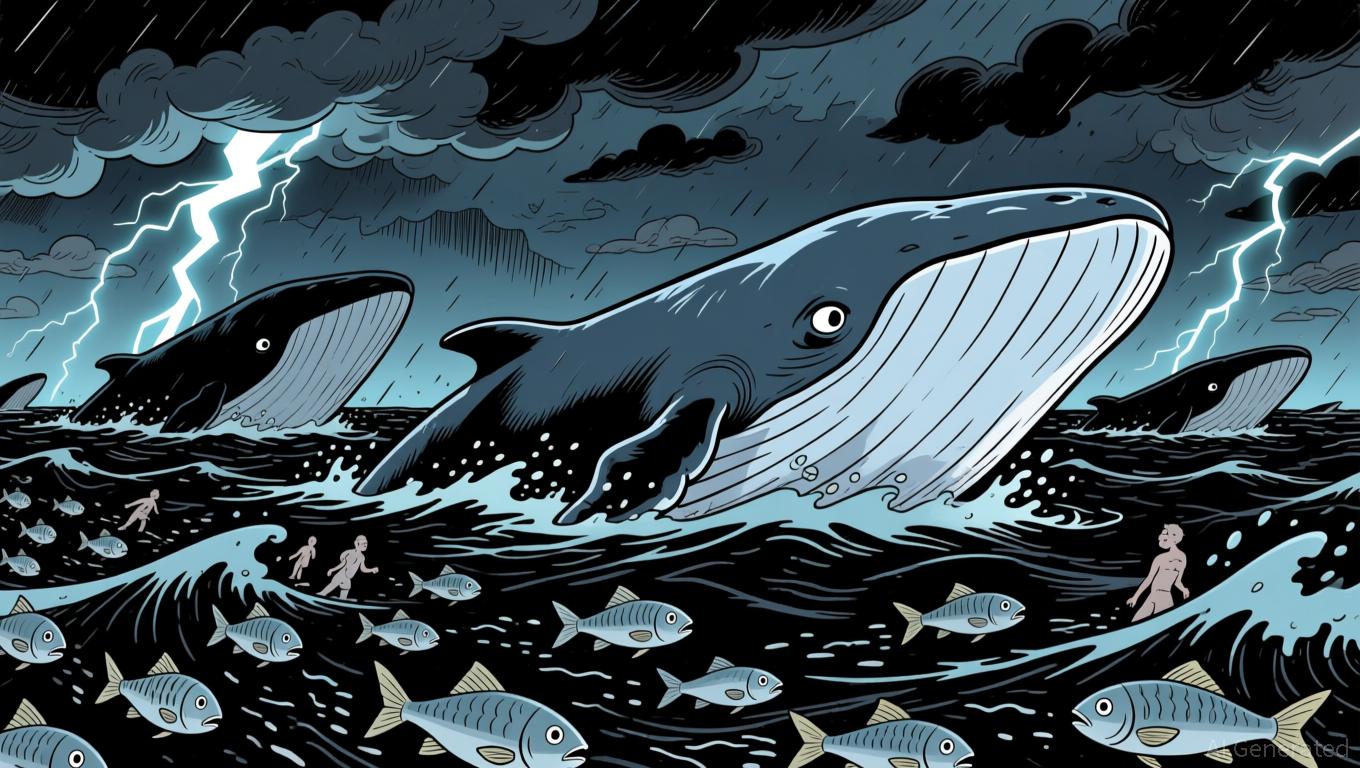"Trump's Lawsuit Pits DOJ Against Itself: Former Lawyers Decide His Claims"
- Trump sues DOJ for $230M over 2016 Russia probe and 2022 Mar-a-Lago search, alleging rights violations and malicious prosecution. - DOJ faces ethical conflict as current leaders previously served as Trump's defense attorneys in the same cases he now contests. - A 2024 federal judge dismissed the case, but Trump claims damages would fund charity or White House renovations, calling it "justice," not personal gain. - Ethics experts condemn the unprecedented conflict of interest, warning it risks public trus
Former President Donald Trump has initiated legal action against the U.S. Department of Justice (DOJ), demanding $230 million in damages. He claims his rights were infringed upon during federal probes into his 2016 campaign’s alleged Russian connections and the 2022 search of his Mar-a-Lago residence for sensitive documents, as reported by several sources[1]. The complaints, filed through an administrative channel generally used to settle disputes before court proceedings, expose a significant ethical dilemma: the DOJ is now overseen by individuals who previously acted as Trump’s defense lawyers in the same matters he is now disputing[2].
The initial complaint, submitted at the end of 2023, requests restitution for the FBI’s investigation into Russia and the special counsel’s inquiry, which did not find evidence of conspiracy but still placed Trump under heavy scrutiny[1]. The second, filed in mid-2024, alleges that the FBI breached Trump’s privacy during the Mar-a-Lago search in 2022 and accuses the agency of “malicious prosecution” for charging him with improper handling of classified materials after his presidency[2]. In 2024, a federal judge dismissed the lawsuit, and after Trump’s return to office, the DOJ withdrew its appeal[3].

This scenario has sparked strong criticism from ethics specialists, who describe it as a unique and troubling conflict of interest. “The ethical dilemma here is extremely basic and fundamental,” commented Bennett L. Gershman, a Pace University ethics professor. “Having DOJ officials—who previously represented him—decide the outcome of his claim is so strange, it almost defies belief[1].”
Trump’s compensation request is now complicated by the DOJ’s current leadership, which features former defense attorneys. Deputy Attorney General Todd Blanche, Trump’s former lawyer in the Mar-a-Lago matter, and Associate Attorney General Stanley Woodward Jr., who represented Trump’s co-defendant Walt Nauta, are among those who could potentially authorize a settlement[4]. According to The New York Times, any financial settlement would likely need Trump’s own sign-off, and he has joked about the paradox of “paying myself” damages[2].
At a White House event, Trump characterized the dispute as an issue of fairness rather than personal enrichment. “I suffered significant harm,” he stated, noting that any awarded funds would be donated to charity or used for White House renovations[1]. He also mentioned the possibility of using the money to build a new ballroom, a project already under consideration as part of larger restoration plans for the White House[6].
The DOJ has refused to discuss the specific claims but emphasized that its officials act in accordance with advice from career ethics experts[7]. A department spokesperson explained that administrative claims are usually settled privately, with any payouts coming from public funds[5].
This dispute highlights ongoing concerns about the DOJ’s autonomy and the risk of political interference in legal matters. While Trump’s attorneys have dismissed the investigations as “partisan witch hunts,” opponents warn that the president’s actions could undermine confidence in the judicial system[6].
Disclaimer: The content of this article solely reflects the author's opinion and does not represent the platform in any capacity. This article is not intended to serve as a reference for making investment decisions.
You may also like
Ethereum Updates Today: Ethereum Transforms into Digital Bonds, Soaring Above $3,000 Driven by Institutional Interest
- Ethereum surged past $3,000 in late 2025 driven by institutional demand, ETF approvals, and technical upgrades like the Fusaka upgrade. - BlackRock's staked Ethereum ETF attracted $13.1B inflows since 2024, reclassifying staked ETH as "digital bonds" for institutional investors. - Over 69 corporations now hold 4.1M ETH in treasuries, but ETF outflows highlight ongoing market differentiation from Bitcoin . - Fusaka's focus on layer-1 scalability aims to redirect economic activity to Ethereum's base layer
Bitcoin News Today: Bitcoin Faces Bearish Turning Point with Death Cross and $75K Teal Band Indicator
- Bitcoin fell below $90,000, triggering bearish signals like the "death cross" and a $75,700 teal band target. - Analysts split between short-term volatility recovery hopes and warnings of prolonged bearish momentum amid Fed rate uncertainty. - On-chain whale accumulation contrasts with $4B in liquidations and RSI hitting 2022 FTX-level lows, signaling fragile market conditions. - Macroeconomic risks from liquidity crunches and synchronized equity declines amplify Bitcoin's role as a global liquidity baro

Zcash News Today: Zcash's Shielded Momentum: $150 Million Institutional Investment in Quantum-Proof Privacy
- Zcash (ZEC) surged 13% in 24 hours despite $1B crypto liquidations, driven by institutional buys and quantum-resistant privacy tech. - Cypherpunk Technologies added $18M ZEC, holding 1.43% of supply, as Zcash’s 140% monthly gain outperforms Bitcoin and Ethereum . - Analysts link Zcash’s rise to shielded pools and institutional demand, while broader crypto markets face $1.35T losses since October.

Bitcoin News Update: Yen’s Decline Tests Bitcoin’s Risk Appetite Link as Fiscal Pressures Mount
- Japanese yen's 10-month low against the dollar sparks debate on Bitcoin's risk-on correlation amid divergent monetary policies. - Japan's ¥14 trillion fiscal package aims to boost liquidity but raises concerns over 240% debt-to-GDP ratio and rising bond yields. - Swiss franc emerges as new risk barometer as yen's carry trade faces strain from higher yields and potential capital outflows. - Bitcoin struggles to hold $92,000 support amid weak institutional demand and ETF inflows, with November bond auction
